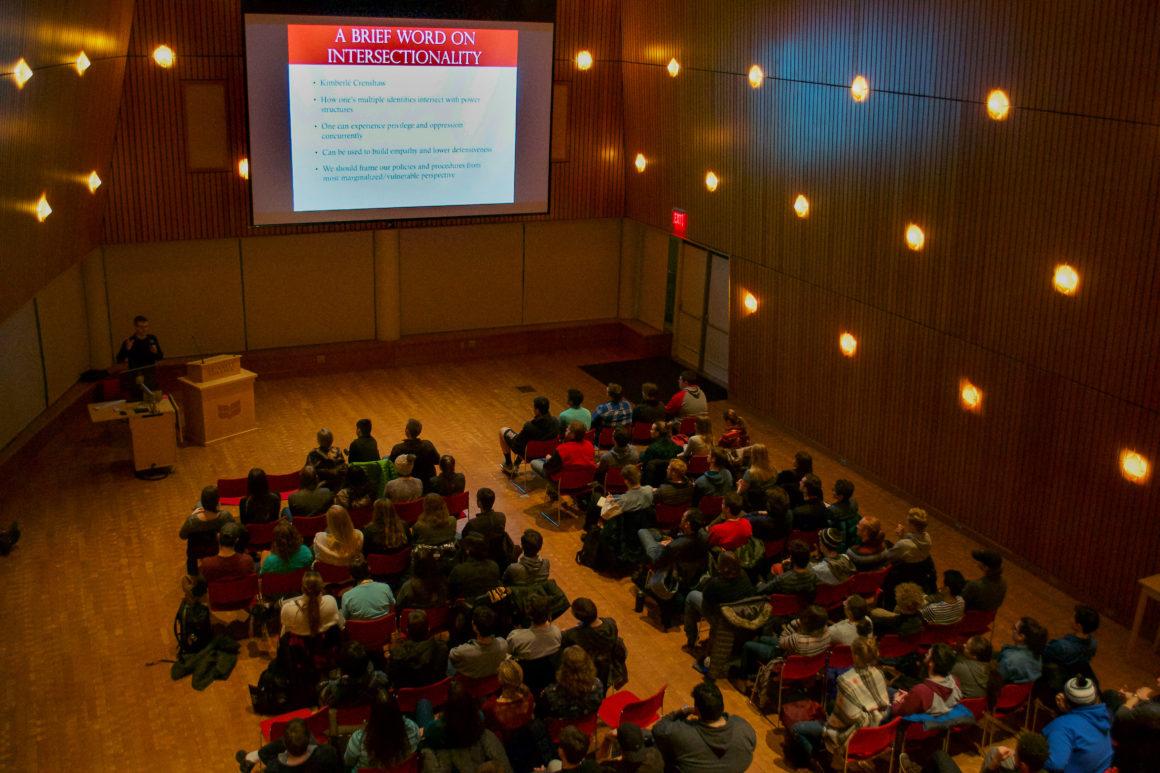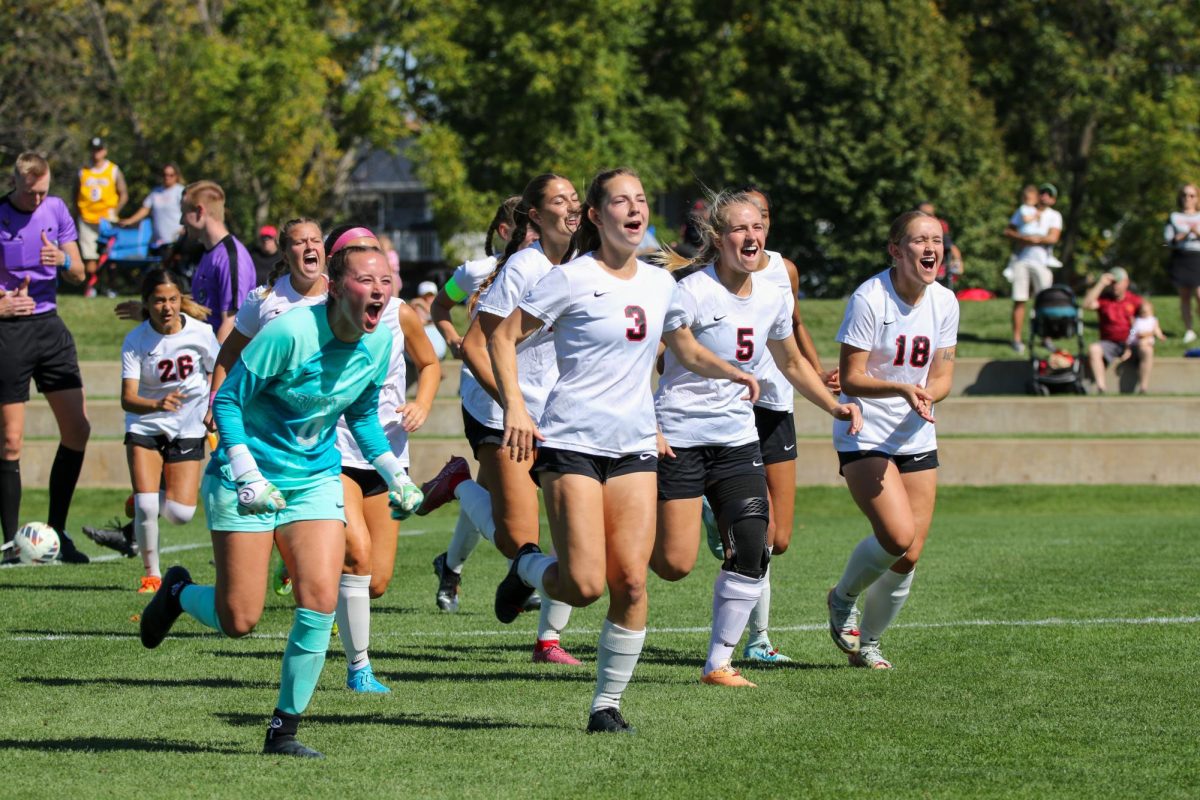
By Tommy O’Donnell
odonnel@grinnell.edu
On Monday night, Dr. Trent Claypool, a licensed psychologist from Colorado Springs, visited campus to give a talk on the role of men in the age of ‘MeToo.’ The talk focused on exploring concepts of masculinity, discussing a man’s role in preventing sexual and domestic violence, and defining an authentic form of masculinity.
Claypool began the discussion by setting specific guidelines. As a white male, he said he recognized his privileged position in giving such a talk and said “everyone has the right to be suspicious of how I ended up here.” He even admitted to benefitting from the problem by having a good job, high salary and gaining the intrinsic reward of helping patients. However, he was clear to state that he is using his privilege not for his own gain, but to completely destroy toxic forms of masculinity that exist in our culture.
The talk was organized by the athletics department as part of Sex Week, and all male student athletes were encouraged to attend. Tom Henehan ’21, a member of the football team, attended the event and emphasized the importance of such discussions happening on campus. “It’s a serious issue, and we need to combat it. I think toxic masculinity is a problem for everybody, and we need to stop it on our campus.”
Claypool discussed how athletes are more liable to use their position to exploit privileges and display forms of toxic masculinity. He referred to cases such as Kobe Bryant, a basketball star who was accused of sexual assault in 2003, and how he is still idolized as a role model to this day. As an athlete, characteristics such as achievement and risk-taking are highly valued, yet these are also traits of toxic forms of masculinity.
Trying to find a healthy balance between the two is vital for student athletes on our campus. “It gets toxic when you do it too much. Like he [Claypool] said in the talk we need to balance out our masculine side with our feminine side and once the masculine side rules over our lives that’s when it becomes toxic … as soon as it’s a harm to others you need to stop,” Henehan said.
Another important catalyst for toxic masculinity, according to Claypool, is the common social separation of student athletes from the rest of the campus. At Grinnell this is an increasingly common point of discussion, and students recognized that there are always degrees of separation. Theo Colaiace ’22, a member of the Men’s soccer team, said, “We had preseason … we couldn’t go to a lot of the NSO stuff, so I’ve been spending a lot of my time trying to make friends outside of the soccer team. It’s a good community to have but I definitely see somewhat of a divide.”
Henehan added, “Obviously anyone who walks in to D-Hall can see that some teams sit separately … I’m not the biggest proponent of it. In other ways, we all go to the same classes and such and I have friends outside of football … thank God … they keep me sane sometimes. I do Nerf at Noyce … and other stuff so I definitely feel like I’m involved on campus in other ways besides football.”
The discussion then turned to discuss how men can prevent sexual and domestic violence. Jen Jacobson, Director of Wellness and Prevention, was cited by both Henehan and Colaiace as an invaluable resource on campus who works closely with student athletes to prevent all forms of violence in the Grinnell community.
“[She] does a great job with football. She hosts talks with us periodically … she discusses masculinity and how sometimes football can take it too far,” Henehan said.
Colaiace also spoke about the importance of senior team members in building a healthy team environment. “they [senior athletes] do a good job. I haven’t had to go to them for any particular reason but they’re definitely helpful in the meetings with Jen Jacobsen … being good role models … giving us examples of how to be respectful members of the community. ”
As a team captain this semester, Henehan recognizes the role he has to play to prevent toxic masculinity from growing within the team. “It gives me the confidence boost that my actions do represent what the team wants and I do have a voice and a say on the team about what culture we want to implement. Even if I didn’t have that position, Grinnell is such an inclusive community and we do a great job recruiting great people to our program … a little criticism like ‘Hey, don’t go that far’ is really open here … you’re able to do it.”


















































